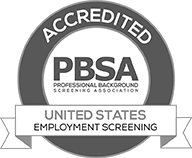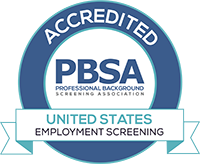BLOG
The US House Considers A Cannabis Expungement Act
August 16, 2022
Decriminalizing Marijuana
The Marijuana Opportunity Reinvestment and Expungement (MORE) Act was passed by the House in April of 2022. It removed cannabis from the list of scheduled substances under the Controlled Substances Act and eliminated criminal penalties for individuals who manufacture, distribute, or possess marijuana.
Since then, Senate Majority Leader Chuck Schumer proposed the Marijuana Misdemeanor Expungement Act (MMEA) to help people expunge criminal records for actions that have since been declared legal. That Act was introduced in July 2022 and quickly passed in the House.
The Marijuana Misdemeanor Expungement Act
Within one year of the Act being signed into law, the Chief Justice of the United States is expected to create policies that cover the review, expungement, sealing, sequester, and redaction of eligible records.
While making decisions abouy expunction requests, the Chief Justice, or other authorized parties, would have the option to consult with various entities, such as:
- The Attorney General of the United States
- Representatives of the United States Sentencing Commission
- Representatives of the Federal Defenders Organizations
- Nonpartisan scholars and subject-matter experts
- When applicable, the Comptroller General
Within two years, each Federal district would be called on to conduct a comprehensive review and issue an order to expunge, seal and sequester:
- Each official record for an expungable event; and
- Other official record(s) related to or referencing an expungable event, unless any record is for or regarding a felony or a misdemeanor unrelated to marijuana.
Petitions For Expungement
According to the Act, people with relevant criminal records would be able to petition to have them expunged. To do this, individuals will file a motion for expungement in the federal district court in which the legal proceedings occurred.
Once a request is filed, the court clerk will submit all relevant details to the United States Attorney for that district. The office of the Attorney then has 60 days to approve or deny and submit a response. Learn more about the Act.
What Employers Should Know
Organizations throughout the United States should be aware multiple states have passed laws that allow residents to expunge certain records for cannabis-related offenses. A national law could empower many more Americans to have eligible records sealed. When records are expunged, hiring managers may not consider or review them for any reason.
It is essential for businesses to only review consumer data that is accurate, up to date and approved to be used for employment purposes. A great way to accomplish this is to work with a Consumer Reporting Agency that is accredited by the Professional Background Screening Agency (PBSA). To earn accreditation, CRAs must prove that they meet the highest standards of compliance and professionalism.
Need Background Checks?
If your organization is bringing on employees, contractors or volunteers, please contact us. Our experienced team can help you customize background checks based on your needs, industry best practices and relevant laws. We’re proud to be accredited and provide reports that help our clients make informed decisions and maintain safe workplaces.
Backgrounds Online is located in Sacramento, California and we are available to assist you Monday through Friday from 5am to 6pm PT.







